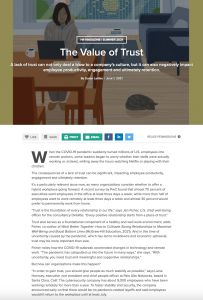
Article
The Value of Trust
A lack of trust can not only deal a blow to a company’s culture, but it can also negatively impact employee productivity, engagement and ultimately retention.
SHRM,
2021
Recommendation
One in three workers doesn’t trust his or her employer – and it translates into poor employee engagement, retention and productivity. A timely article in HR Magazine from writer Susan Ladika outlines trust-building practices and traits that leaders, managers and HR professionals can adopt. The article includes recommendations for monitoring remote workers with respect.
Summary
About the Author
Susan Ladika is a freelance writer based in Tampa, Florida.
Learners who read this summary also read
Book
Podcast
Book








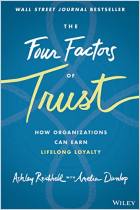
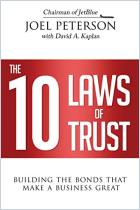
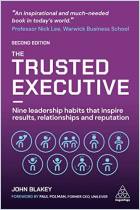

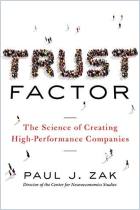
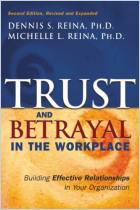






Comment on this summary or Start Discussion